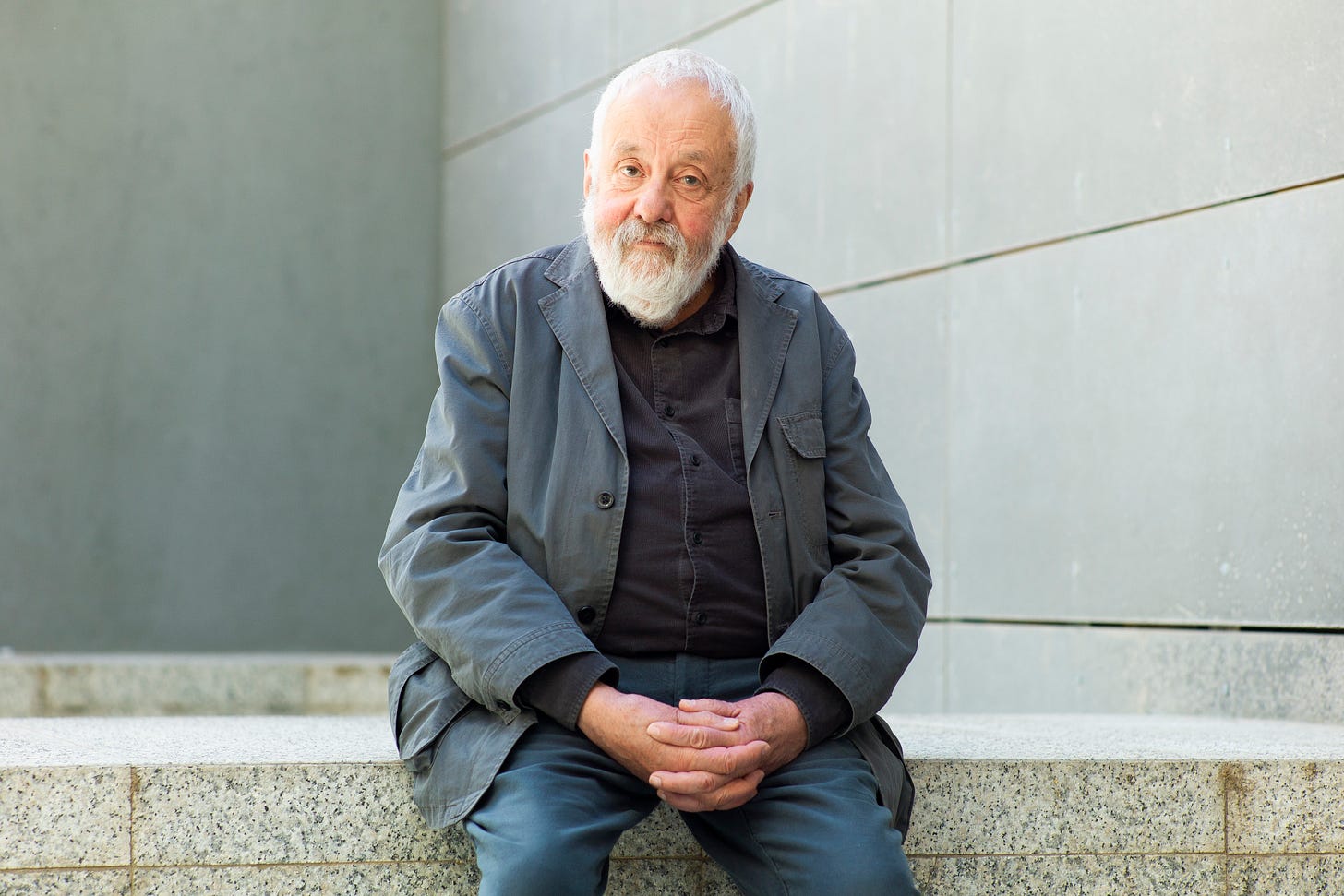Mike Leigh’s gloriously inefficient filmmaking process
“I can’t tell you about the character because there is no character.”
Welcome to the latest issue of Subtle Maneuvers. If you’re not yet a subscriber, you can become one here:
Mike Leigh (b. 1943)
Last week, I was sick for several days—fever, sore throat, fatigue, ugh—so I did all the usual comfort things I do when I’m sick: napped on the couch, snugged my dog, drank tea with lemon and honey, and watched at least one Mike Leigh movie per day.
What is it about Mike Leigh movies that are so comforting? They’re not exactly upbeat. The 80-year-old English filmmaker specializes in what Freud once called ordinary unhappiness: the everyday drama of boring jobs, ungrateful children, baffling romance, and occasional awkward attempts at transcending it all.
But there’s something hypnotic about them, and I think it has to with the characters—these fucked-up, funny, vain, beleaguered, petty, noble, querulous, pretentious, and deeply familiar characters, whose foibles line up with their fellow characters’ foibles in such a way that it creates, inexorably, the drama of the movie. How does he do it? I mean, how does Leigh get such fully realized, fully human characters onto the screen?
Keep reading with a 7-day free trial
Subscribe to Subtle Maneuvers to keep reading this post and get 7 days of free access to the full post archives.


